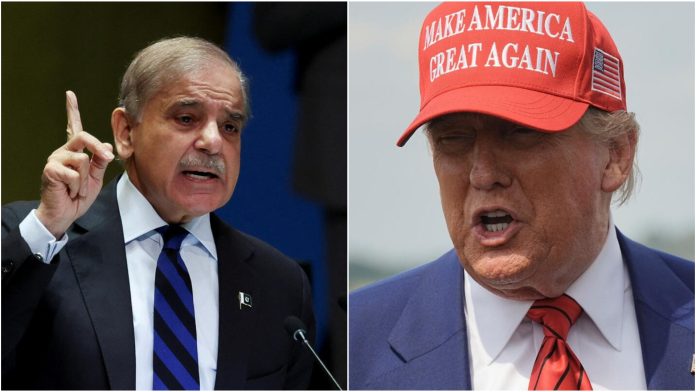Pakistan has stated its intention to recommend US President Donald Trump for the Nobel Peace Prize, citing his involvement in reducing tensions during a recent flare-up with India.
President Trump has previously voiced interest in receiving the honour, expressing frustration over what he sees as a lack of recognition for his diplomatic contributions.
The proposed nomination relates to a ceasefire declared in May following a brief but intense four-day standoff between India and Pakistan, both of which possess nuclear weapons. According to the Pakistani government, President Trump played a key role in bringing about the truce, which he has since described as a major act of conflict prevention that may have saved millions of lives.
Nobel Peace Prize efforts: Ceasefire or political strategy?
Some analysts in Pakistan believe the nomination may also be part of a broader effort to influence President Trump’s position on a potential joint military initiative with Israel targeting Iran’s nuclear infrastructure. Pakistan has consistently criticised Israeli operations in the region, arguing they violate international norms and risk further destabilising the Middle East.
While Islamabad credits US diplomatic efforts for ending the clash, New Delhi maintains the ceasefire was the result of direct talks between its military and Pakistan’s forces.
“President Trump demonstrated strategic vision and effective diplomacy by engaging with both Islamabad and New Delhi to ease a rapidly worsening situation,” a Pakistani government statement read. “This intervention highlights his potential as a genuine peacemaker.”
Nominations for the Nobel Peace Prize can be submitted by national governments, among others. The US administration has not yet responded, and the Indian government declined to comment.
Mixed reactions in South Asia
President Trump has previously offered to mediate between India and Pakistan over the long-standing dispute in Kashmir, a gesture welcomed by Islamabad but firmly rejected by New Delhi. His approach has disrupted the traditional direction of US foreign policy in South Asia, which has typically favoured strengthening ties with India as a counterbalance to China’s influence.
In a recent post on social media, President Trump listed several international disputes he claimed to have helped resolve during his presidency, including the India-Pakistan tension and the Abraham Accords between Israel and several Muslim-majority nations. “I won’t get a Nobel Peace Prize no matter what I do,” he remarked.
Pakistan’s announcement coincided with a high-profile meeting between its army chief, Field Marshal Asim Munir, and President Trump. The lunch event marked the first time a Pakistani military leader visited the White House while a civilian government was in office in Islamabad.
Praise and criticism at home
A planned meeting between President Trump and Indian Prime Minister Narendra Modi at the G7 summit in Canada did not go ahead due to the US president’s early departure. However, the two later held a phone conversation, during which Mr Modi reaffirmed India’s longstanding position against third-party mediation in its dispute with Pakistan.
Mushahid Hussain, a former chair of the Senate Defence Committee in Pakistan, defended the proposal to nominate President Trump.
“He’s been favourable towards Pakistan,” he said. “If this plays to his ego, so be it. European leaders have been flattering him for years.”
Nevertheless, not everyone in Pakistan supports the idea. Some have criticised President Trump’s strong backing of Israeli military actions in Gaza, which has provoked anger in the country.
“Israel’s main backer in Gaza and vocal supporter of strikes on Iran is hardly a peace prize candidate,” said Talat Hussain, a well-known Pakistani political commentator, in a post on X. “And what if he turns back to embracing Modi in a few months?”
